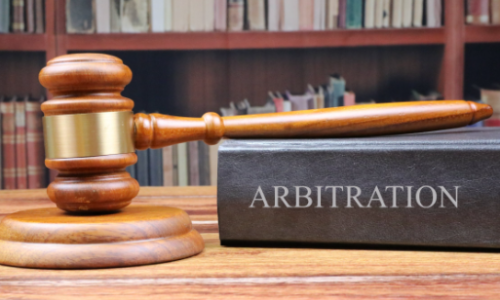Arbitration Matters
Arbitration is a crucial aspect of dispute resolution in the legal landscape, offering parties an alternative to traditional litigation. In this article, we explore the intricacies of arbitration, its significance, and how it impacts legal proceedings.
Understanding Arbitration
Arbitration is a form of alternative dispute resolution where parties agree to resolve their conflicts outside of court. It involves presenting arguments and evidence to a neutral third party, known as an arbitrator or panel of arbitrators, who then render a binding decision.
Advantages of Arbitration
Arbitration offers several advantages over litigation, including:
Flexibility: Parties have more control over the arbitration process, including selecting arbitrators, scheduling hearings, and determining procedural rules.
Confidentiality: Arbitration proceedings are private and confidential, offering parties greater discretion over sensitive information.
Efficiency: Arbitration typically proceeds more quickly than litigation, reducing the time and cost associated with resolving disputes.
Expertise: Parties can select arbitrators with specialized knowledge and experience relevant to their dispute, ensuring a more informed decision-making process.
Types of Arbitration
Arbitration can take various forms depending on the nature of the dispute and the preferences of the parties involved. Common types of arbitration include:
Ad Hoc Arbitration: Parties agree to arbitration without involving any specific arbitration institution, allowing for greater flexibility in procedure and rules.
Institutional Arbitration: Parties submit their dispute to an arbitration institution, such as the International Chamber of Commerce (ICC) or the American Arbitration Association (AAA), which administers the arbitration process according to established rules and procedures.
Domestic Arbitration: Arbitration conducted within the boundaries of a single country, subject to its laws and regulations.
International Arbitration: Arbitration involving parties from different countries, often governed by international treaties, conventions, or institutional rules.
Understanding Civil Law
Civil law is distinct from criminal law in that it deals with private disputes between individuals or organizations, rather than offenses against society as a whole. While criminal cases involve the state prosecuting an individual for breaking the law, civil cases typically involve disputes over rights and obligations.
Differentiating Civil Law from Criminal Law
In criminal cases, the burden of proof lies with the prosecution, and if found guilty, the defendant may face penalties such as imprisonment or fines. In contrast, civil cases require the plaintiff to prove their case by a preponderance of the evidence, and the remedies sought usually involve compensation or specific performance rather than punishment.
Types of Civil Matters
Civil matters encompass a broad spectrum of issues, including but not limited to contract disputes, property disputes, personal injury cases, family law matters, and employment disputes. Each type of civil case involves its own set of legal principles and procedures.
Importance of Civil Matters
Civil matters play a crucial role in maintaining a just and orderly society by resolving disputes and upholding the rule of law.
Ensuring Justice and Fairness
Civil courts provide a forum for individuals to seek redress for grievances and enforce their legal rights. By adjudicating disputes in a fair and impartial manner, civil law promotes accountability and ensures that parties are held accountable for their actions.
Protecting Rights and Interests
Civil law protects individuals’ rights and interests by providing legal mechanisms for enforcing contracts, resolving property disputes, and seeking compensation for harm suffered. Without civil law, individuals would have limited recourse against wrongful actions or breaches of contract.
Common Issues in Civil Matters
Civil matters encompass a wide range of legal issues, but some are more common than others.
Contract Disputes
Contract disputes arise when parties to a contract disagree about the terms or performance of the agreement. These disputes may involve breach of contract, interpretation of contract terms, or failure to fulfill contractual obligations.
Property Disputes
Property disputes can arise over ownership, boundaries, easements, or use of real property. These disputes often require legal intervention to clarify property rights and resolve conflicts between parties.
Personal Injury Cases
Personal injury cases involve claims for damages resulting from accidents, negligence, or intentional harm. These cases seek compensation for medical expenses, lost wages, pain and suffering, and other losses incurred due to the injury.


The Arbitration Process
Arbitration typically follows a structured process designed to facilitate fair and efficient resolution of disputes.
Initiation
The arbitration process begins with the parties agreeing to arbitrate their dispute either through a pre-existing arbitration clause in a contract or through a separate arbitration agreement. Once the agreement is in place, the arbitration process can commence.
Selection of Arbitrators
The parties then select one or more arbitrators to preside over the arbitration proceedings. Arbitrators are chosen based on their expertise, impartiality, and availability to hear the case.
Preliminary Hearing
Before the arbitration hearing, the arbitrator may hold a preliminary hearing to discuss procedural matters, establish a timeline for the arbitration process, and address any preliminary issues raised by the parties.
Presentation of Evidence
During the arbitration hearing, each party has the opportunity to present their case, including witness testimony, documents, and other evidence relevant to the dispute. The arbitrator may also allow for cross-examination and rebuttal by the opposing party.
Decision
After considering the evidence and arguments presented, the arbitrator renders a decision, known as an arbitral award, resolving the dispute between the parties. Arbitral awards are typically final and binding, with limited grounds for appeal.
The Role of Arbitrators
Arbitrators play a critical role in the arbitration process, serving as impartial adjudicators tasked with resolving disputes fairly and impartially.
Duties of Arbitrators
Arbitrators have several duties, including:
Impartiality: Arbitrators must remain neutral and unbiased throughout the arbitration process, avoiding conflicts of interest and ensuring a fair hearing for all parties involved.
Due Process: Arbitrators are responsible for conducting the arbitration proceedings in accordance with agreed-upon rules and procedural safeguards, ensuring that each party has an opportunity to present their case and respond to the opposing party’s arguments.
Decision-Making: Arbitrators must carefully consider the evidence and arguments presented by the parties before rendering a decision, taking into account relevant legal principles and factual circumstances.
Qualifications of Arbitrators
Arbitrators are typically experienced legal professionals or subject matter experts with specialized knowledge and expertise relevant to the dispute at hand. They may be lawyers, retired judges, industry professionals, or other qualified individuals capable of resolving complex disputes.

Conclusion
Arbitration offers parties a flexible, efficient, and confidential means of resolving disputes outside of court. By selecting arbitrators with specialized expertise and adhering to established procedures, parties can achieve timely and cost-effective resolution of their conflicts, preserving business relationships and avoiding the uncertainties of litigation.
Contact Us
For expert legal assistance, inquiries, or guidance, reach out to us without delay. Our seasoned attorneys are ready to assist you effectively. Contact us via phone, email, or by filling out the form below. Expect prompt responses and tailored support for all your legal concerns.